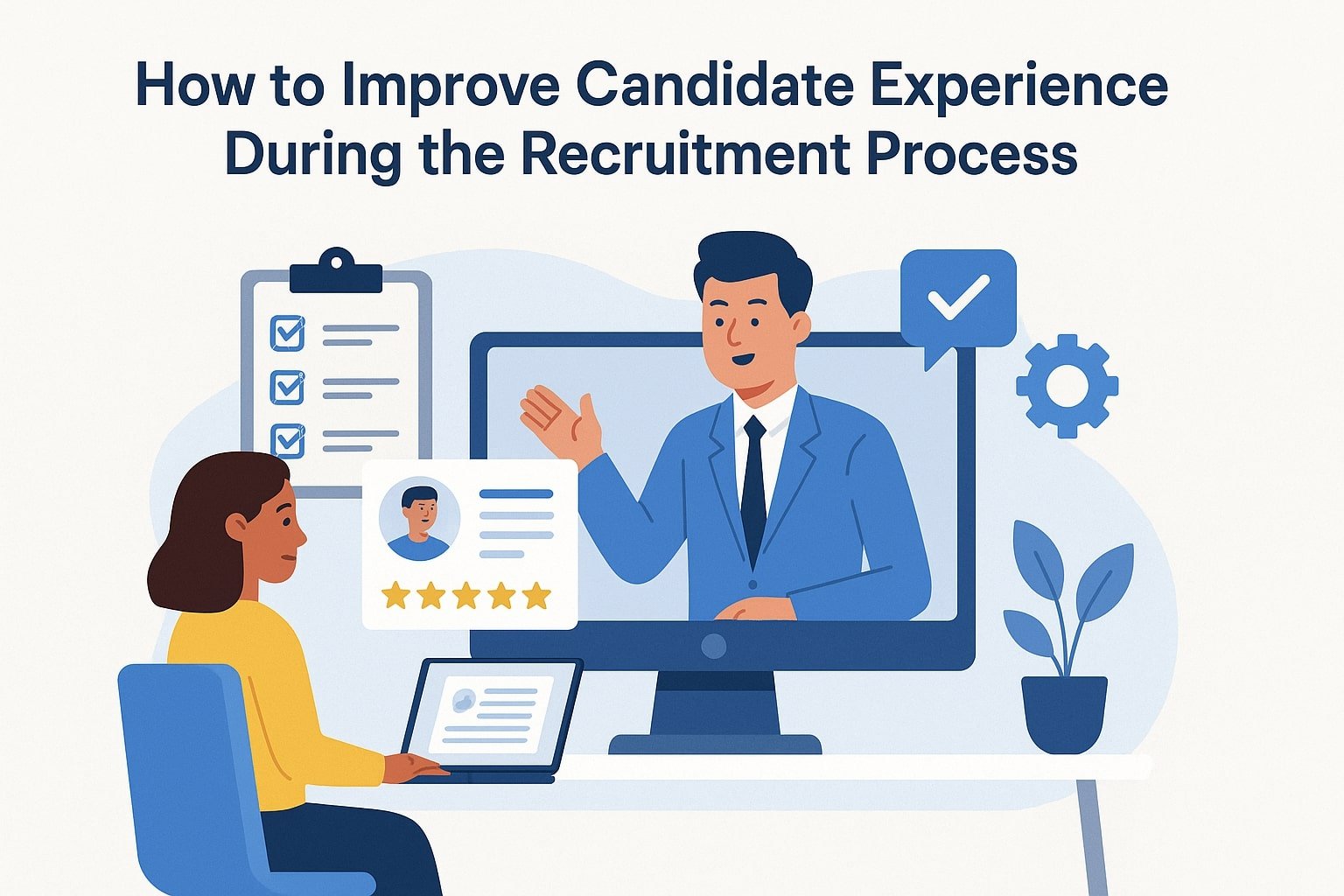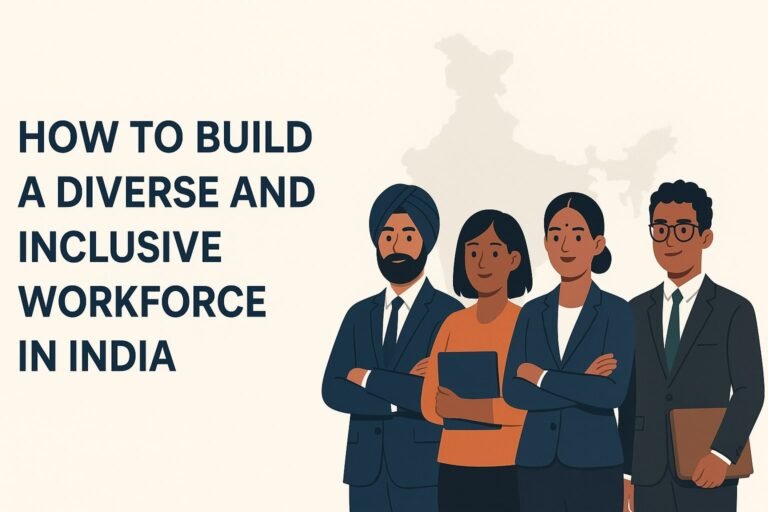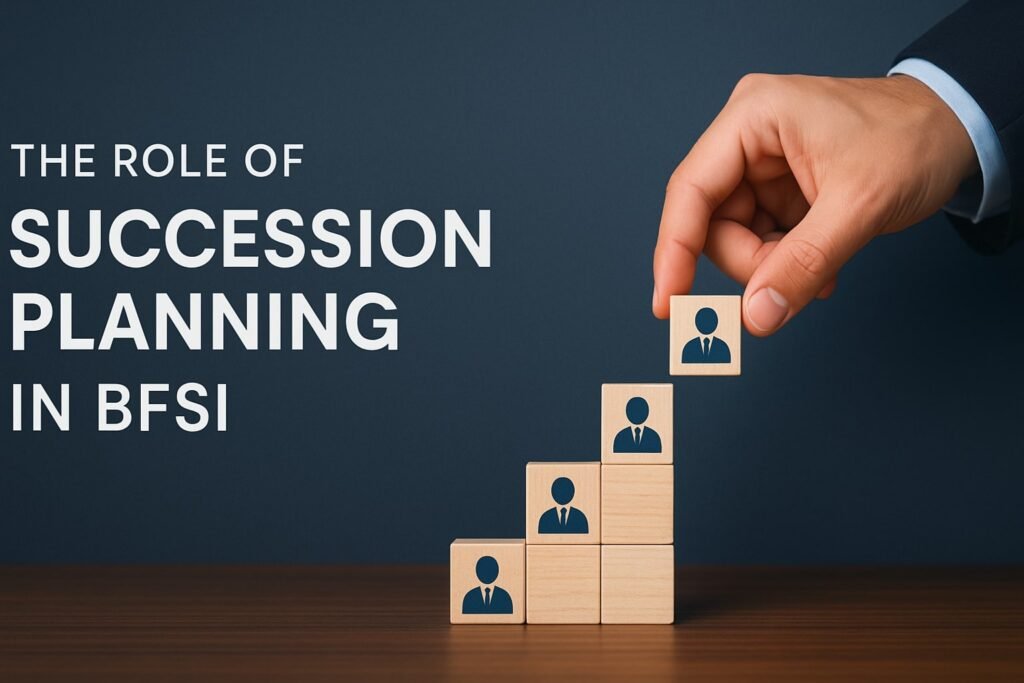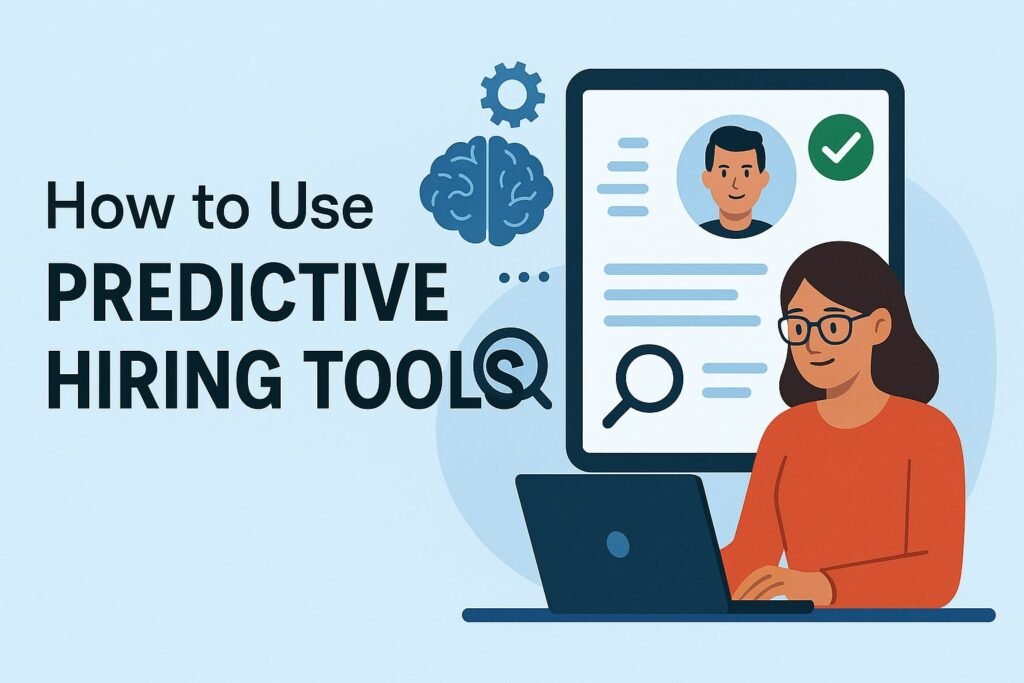How to Improve Candidate Experience During the Recruitment Process
Introduction
In today’s talent-driven market, candidates have options — and they’re judging your organization not just on the job role, but on how you treat them during the recruitment journey. A poor candidate experience can damage your brand, while a great one can turn even rejected applicants into ambassadors. Here’s how to design a candidate experience that is respectful, transparent, and engaging.
Why Candidate Experience Matters
- Enhances your employer brand
- Increases acceptance rates
- Encourages candidate referrals
- Lowers offer drop-offs
- Builds trust and loyalty
Candidates share their experiences widely through social media, review platforms, and word-of-mouth — making candidate experience more critical than ever.
1. Communicate Proactively
Nothing frustrates candidates more than being left in the dark. Proactively share:
- Interview timelines
- Feedback after each round
- Reasons for delays
Even a simple update makes candidates feel valued.
2. Simplify Your Application Process
A lengthy, complicated application process can discourage great candidates.
- Keep forms short
- Offer easy resume uploads
- Optimize for mobile devices
Frictionless applications improve completion rates.
3. Respect Their Time
Candidates are balancing interviews with their current jobs and personal commitments.
- Schedule interviews efficiently
- Start interviews on time
- Avoid redundant rounds
Respecting their time shows you respect them.
4. Provide Constructive Feedback
If a candidate isn’t selected, offer meaningful, respectful feedback. This not only demonstrates your professionalism but also helps candidates grow and leaves a positive impression.
5. Train Your Hiring Teams
Your interviewers are brand ambassadors. Train them on:
- Structured interview techniques
- Unconscious bias
- Consistent evaluation criteria
- Empathy and active listening
Well-trained interviewers make the process smoother and fairer.
6. Personalize the Experience
Avoid cookie-cutter communications. Personalize emails and messages with the candidate’s name, role, and any relevant details. Show them you see them as individuals, not just resumes.
7. Prioritize Transparency
Be upfront about compensation, working hours, company culture, and challenges of the role. Honest conversations build trust and reduce offer rejections later.
8. Create a Smooth Onboarding Transition
Candidate experience doesn’t stop at offer acceptance. A well-structured onboarding process reassures new hires that they made the right decision.
- Share welcome kits
- Set up orientation plans
- Assign a mentor or buddy
Conclusion
Candidate experience is no longer optional — it is a strategic advantage. By putting candidates at the center of your recruitment process, you can attract better talent, enhance your employer brand, and build a positive reputation that lasts.
How Valorega TalentEdge Can Help
We help organizations design candidate-centric recruitment processes that leave a positive impression. From application to onboarding, our expertise ensures candidates feel respected, valued, and excited to join your team.






